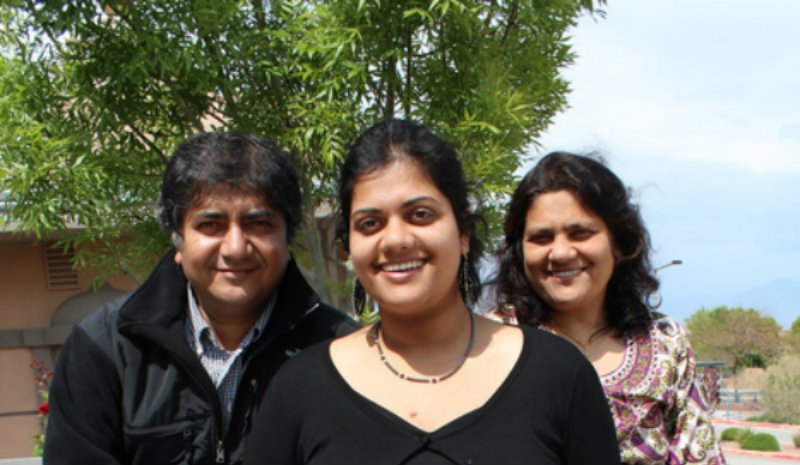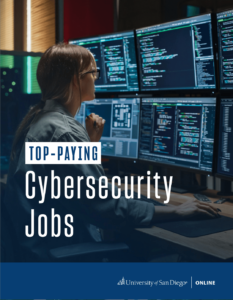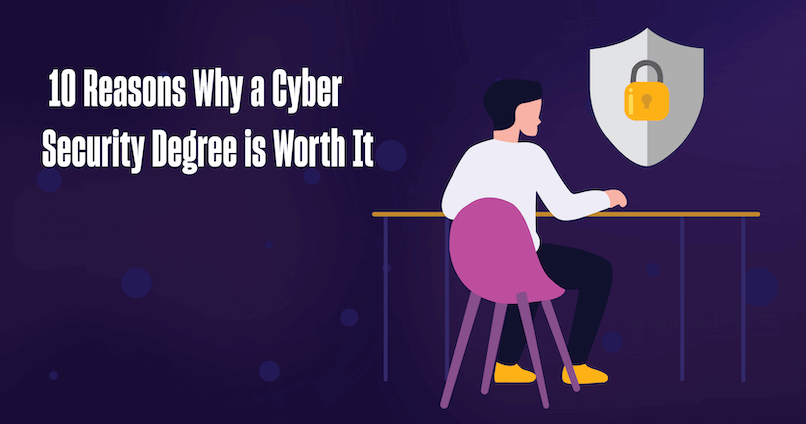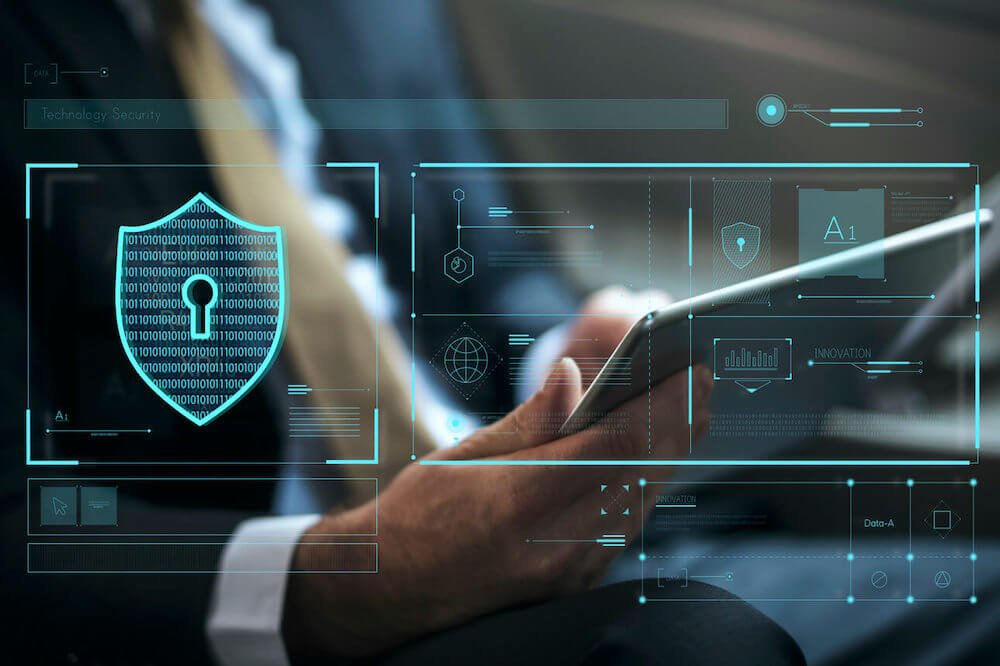Mansi Thakar is a current graduate student in the University of San Diego’s online Master of Science in Cyber Security Operations and Leadership. With an undergraduate degree in chemistry, Mansi decided to get a cyber security degree after becoming intrigued with the field and realizing how highly transferable and applicable a degree in the discipline would be.
“When you work in cyber security, it is like you are a super hero in people’s digital lives. Being a super hero is a dream come true!” said Mansi. In addition to her graduate studies, she’s been working on numerous certifications, learning Python and volunteering for a variety of industry organizations.
We recently sat down with Mansi to discuss her experience at USD and her decision to pursue a career in cyber security. Here’s a bit of what she had to say.
What do you like best about the University of San Diego’s Master of Science Cyber Security degree program?
I love that each course is very focused and that we only take one class at a time, for seven weeks, so that we can really concentrate on that one topic and gain a strong foundational knowledge. Also, the professors do an awesome job with helping us to navigate the online discussions and the general assignments are so applicable and useful.
What do you hope to do with your degree upon graduation?
I’m very interested in the intersection between data analytics and cyber security.
The program coordinators and the directors and actually everyone affiliated with the program are so great with sending opportunities along to students and sharing links to news on what is happening within the cyber security community — this is so helpful in keeping us current. For example, the director recently sent us an email about an NSA code challenge that was coming up. If he hadn’t notified us, I never would have known about it. Because of this program we are all so connected with the industry.
How did you like learning online?
I definitely think there are some challenges being online, but overall my experience has been great. When we are given team activities or team discussions it really helps to encourage us to connect with each other outside of just the normal weekly discussion boards. And that support system that you would find in an on campus course is definitely found in this online program as well. The networking opportunities have been tremendous — everyone in my cohort has such a lengthy and vast range of experience. Being new to the field, I tend to ask the most basic questions but everyone is so sweet and so humble and readily available to help.
Do you think cyber security education is important?
Yes. One of the interesting things is that cyber security is one of the only fields with a negative unemployment rate. And it’s a widening field because security can be applied everywhere. Anything can be hacked. But we need to bridge the gap between the opportunities and jobs available and the people that actually have the skillsets required to fill those jobs. In order to obtain these skills, higher education is definitely needed. You don’t want a CSO for example, that doesn’t have that deep foundation.
Do you think getting a master’s degree is important for professionals in your field?
I do think it’s important. There are a number of classes you can take online and certifications you can acquire but you learn the material so much more deeply when you are in a program as opposed to taking individual classes here and there.
Not only that, but being in a master’s program is extremely helpful when it comes to networking. Without this program I wouldn’t know anyone in the field. Even now when I’m looking for internships – peers, directors, and even those that are not related to the program directly but know of its reputation, have been so helpful in trying to help me find opportunities. A few of my friends (many of whom have undergrad degrees in a related field) are trying to get a job in cyber security, but they aren’t enrolled in a master’s program, and they are having a much harder time getting in the door. I see first-hand what a difference having a master’s degree makes in the cyber security industry.
Can you talk a bit about being a woman in a male dominated industry?
There is definitely a gender gap in the industry. In my cohort as well, there are far more males than females. It seems like there is this “boys club.” But the challenge of being a woman in an industry dominated by men has only propelled me to move forward. Many women are inhibited by that though. So it is very important that we learn to collaborate and help to bridge the gender gap as well as the inclusion gap. That said, I don’t think companies should be hiring to check off an inclusion box. They should be hiring based on a candidates’ credentials. So that also means encouraging more women to enter the field.
There is actually a really interesting study that says if there is a job posting that lists five skills needed to perform the job, women who only possess say three of the skills, won’t apply. Whereas a man will be more likely to look at the same job description and say “Oh yeah, I can do that job,” even if they only possess one or two of the skills listed.
That initial inhibition that is so prevalent in women is so powerful in working against us and dissuading women who might otherwise apply.
Stereotypes also come into play. When you imagine a hacker, you probably imagine a nerdy guy. When I considered entering the field, I had to redefine the stereotypes and crumble the preexisting notions I had. And the notions I had are very similar to the notions many people have. One thing that a panelist recently said at a conference I attended was that the people who build it should be able to relate to the people who use it. The notion was that everyone is using technology these days: kids, adults, grandparents, males, females, everyone! It’s really important when people start to realize that if I am a consumer, I could definitely be on the other side and help build the architecture behind this piece of technology that I use every day.
Are there ways that women can get more involved in cyber security?
I have learned a lot from other women. WISP and Women Who Code are two organizations that have been really great about encouraging women to enter the field, helping us to network and sharing advice from other women. It has been so inspirational to hear from other accomplished women in the industry. I recently got to attend the API conference because I was given a free ticket from Women Who Code. I feel very blessed that these organizations are already in place but we still have a considerable amount of work that needs to be done.
What advice would you give to someone considering a degree in cyber security?
Definitely try it. There aren’t that many financial commitments to enter the field because there are so many online tutorials that help you learn certain skills and coding languages. But that inner drive is required. If you are able to financially commit to your education, then I believe it is very much worth getting an advanced degree. Because, for one, that support system starts existing when you enroll in a degree program, if you are just out there trying to do it by yourself that feeling of isolation exists. I think to be truly successful in this field you need two things: motivation and support.
If I had to draw a graph of my interest in the field since I started this program, the curve would be exponential. The more I learn, the more interested in cyber security I become.
If you are interested in pursuing a Master of Science in Cyber Security Operations and Leadership, the University of San Diego accepts students on a rolling basis in the fall, spring and summer for admission into our 100% online cyber security master’s degree. To learn more about this unique program and to see if it is the right fit for you, speak with a USD admissions advisor today.




